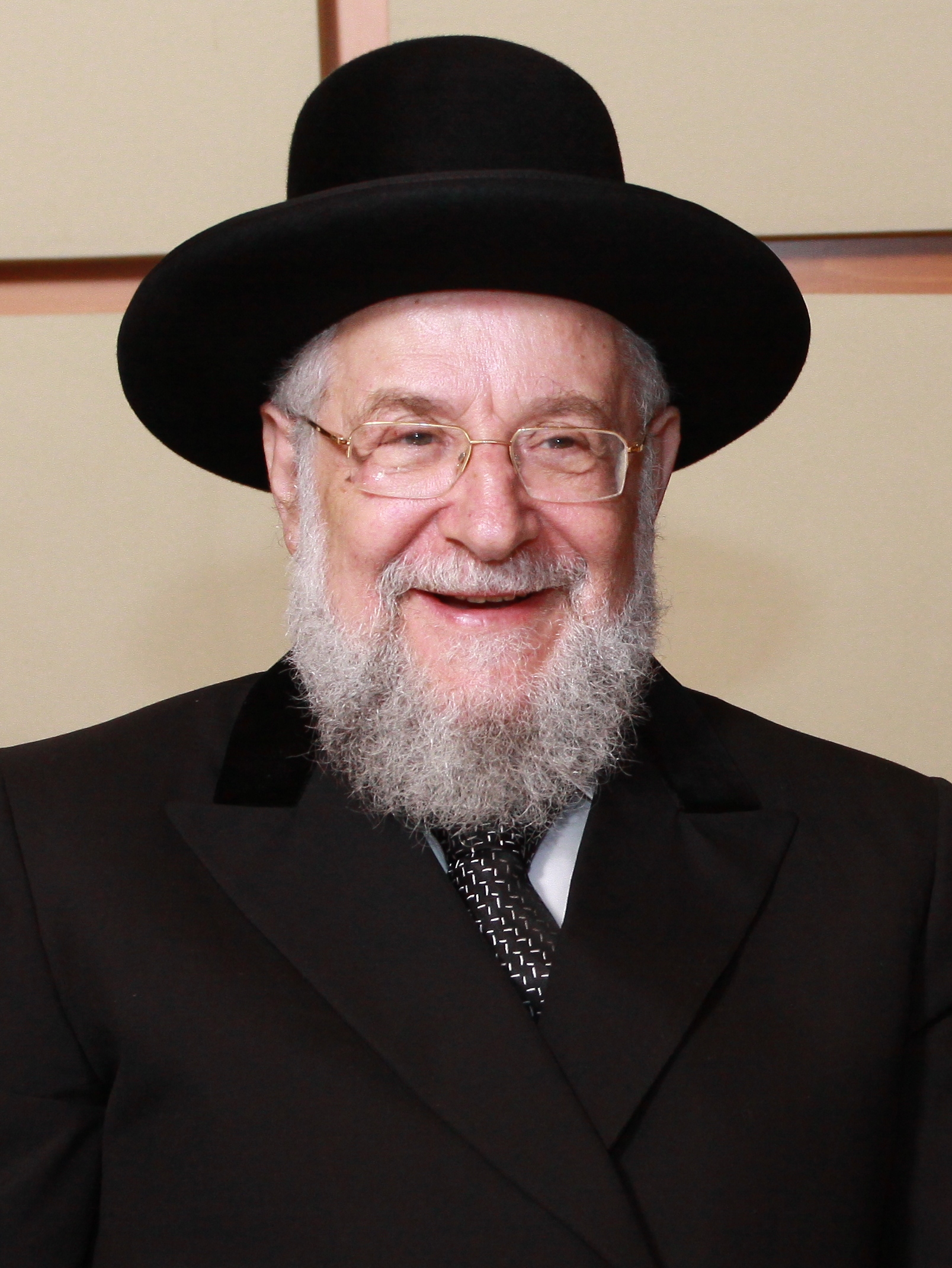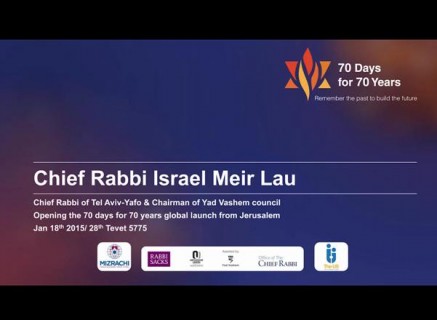Day 63
Out of the Depths
In memory of my father Reb Chaim Yosef ben Reb Yissochor Dov a”h. Forever in awe of how you survived and rebuilt your family after all you lived through. Yehi zichro baruch. Benny Groszman.
CLICK HERE TO BUY THE BOOK

Chief Rabbi Yisrael Meir Lau
Chief Rabbi Yisrael Meir Lau is the Chief Rabbi of Tel Aviv, Israel,
and Chairman of Yad Vashem. He previously served as the Ashkenazi Chief Rabbi of Israel from 1993 to 2003. Lau was rescued from the Buchenwald concentration camp and immigrated to Mandate Palestine with his brother Naphtali in July 1945.





